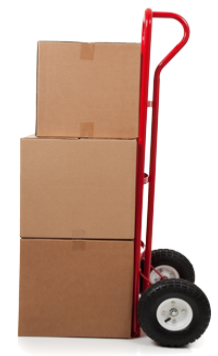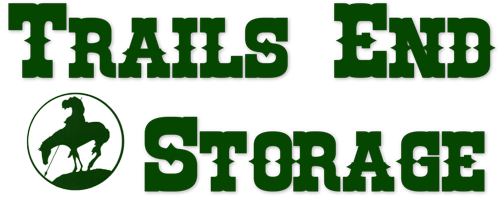
- Do not store hazardous or toxic materials OR flammable liquids or gases OR foods. If you are not sure you should store something, ask the staff!
- Do not store any combustibles! Do not store items such as propane tanks, old paint, cleaning fluids, gasoline or other things that might create or intensify a fire. Why risk your possessions just to keep a few cents worth of leftovers?
- Remember, you alone are responsible for providing insurance on your property. You must buy insurance coverage yourself and you must pay the premium yourself; the operator does not insure your goods.
- Remember that only the tenant is legally entitled to enter the storage space unless other arrangements have been made with the self-
storage facility; for example, if you want friends and members of your family to use your storage space, you must list them under access rights on the rental agreement. - Visit your self-
storage space on occasion to check the condition of your possessions; occasionally move or shift your goods so that you see all sides of them. Report any problems immediately. - When moving out of storage, give at least 10 days written notice. Take everything and don’t leave any trash. Leave the unit in broom-
clean condition. Remove your lock. - If storing bedding, clothing or furniture covered in fabric or property that may be affected by changes in temperature, it may be wiser to rent climate-
controlled space to provide a better storage environment for your personal possessions. Be certain that everything stored is dry, as any moisture may cause mildew. If you move during rain, dry off your goods before placing them into storage. Do not store anything that is wet; moisture is bad for virtually all property or goods.
General Storage Information
- Use the best lock possible to protect your valuables.
- Purchase insurance on your property, either through the facility or with your own agent. Remember that the storage operator does not insure your goods.
- Remember to give at least 10 days written notice before you plan to move out of your unit. This is required by the contract you sign!
- Don’t store prohibited items such as tires, food, or flammable items. Check the storage facility’s rules or your contract for a complete list.
- Your property could be sold at a public auction if you stop paying rent on your unit. Texas Property Code Chapters 59 and 70 dictate the state’s rules for self-
storage operators.
Important Guidelines

- Fill boxes to capacity. Partially full or bulging boxes may collapse or tip over while stored.
- Label your cartons and goods. This will make accessing items much easier.
- Books and documents: Pack books flat to protect spines; use small boxes to avoid cartons that are too heavy to move easily. Put heavy items on bottom.
- Dishes and glassware: Glass items should be individually wrapped; use blank wrapping paper for best results; “nest” cups and bowls, stand plates and platters; fill air pockets with wrapping paper or foam peanuts; don’t put breakables under other boxes.
- Mirrors, windows, screens: Wrap all glass well; store on edge, not flat.
- Lamps: Pack lamp shades separately; use blank paper to wrap lamp shades and other property that may be damaged by ink stains from regular newsprint.
- Furniture: Stand sofas and mattresses on end; disassemble beds and tables; wrap legs in wrapping paper; keep upholstery off floor; place loose, light plastic dust covers or sheets over furniture.
- Appliances and electronics: Clean appliances thoroughly. Refrigerators and freezers must be defrosted and dry and washing machines completely drained. Remove doors of appliances and store separately; desiccants (drying agents) should be used and containers checked and emptied regularly. Take apart lawn mowers and snow blowers, making sure all the fuel is completely drained.
- Bicycles: Wipe a few drops of oil on bicycles and tools to prevent rusting, then store these items away from furniture to avoid oil staining.
- Clothes: Wardrobe boxes allow you to store your clothing on hangers. Shoes can be stored in the bottom of the wardrobe boxes, while folded clothing can be stored in boxes or dresser drawers.
- Put pallets or a grid of 2’ x 3’s on the unit floor to give better air circulation under goods; leave a walkway/aisle to the rear of the unit. Don’t over pack the unit!

Packing Tips
Reserve Your Storage Unit Today: (830)367-3636
Trails End Storage supports free speech. We do not support Facebook.
2015 © Trails End Storage. All rights reserved

